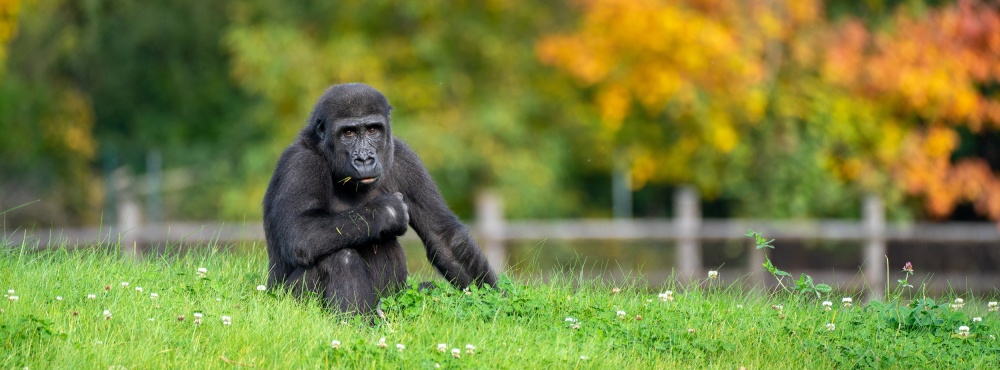An open letter to the directors of EAZA member zoos

Director of Prague Zoo Miroslav Bobek expressed his opinion on events, concerning the Copenhagen Zoo and the euthanasia of animals in his opened letter to the directors of member zoos of European Association of Zoos and Aquaria. As we are receiving a lot of questions, regarding this issue, we publish this letter for you, too.
Dear colleagues,
We struggle to provide our animals with the best conditions possible.
We build new expositions and pavilions.
We prepare education programmes.
We strive for the protection of endangered species.
We are grateful for each visitor.
We cooperate with each other and comply with each other’s wishes.
Every one of us does the best for his/her zoological garden. We work hard to fulfil our mission and at the same moment to bring joy and education to millions of people.And then a catastrophe comes. For example floods. But even when the high water destroys everything, we have one security: the favour and support of the public. Thanks to their trust we can always rise up from the rubble and mud and forge ahead.
We can face any kind of catastrophe, if we manage to keep the favour and support of the public. But these are now under threat.
Paradoxically, the danger is not some external factor, but it comes from colleagues within our own community. The recent steps taken by the management of Copenhagen Zoo place us at a greater risk than any flood.
Certainly, we must assume a rational attitude regarding the management of any population of animals held in captivity. But “rational” does not mean acting without sensitivity and empathy.
Although I would never cast doubt on the legitimacy of euthanasia of Marius, the giraffe male, I have left open the question whether a place for him in another EAZA facility could have been found.
I consider it to be a grave mistake that in spite of public protests, Marius was carved into portions in front of cameras. Maybe this act did not raise excessive emotions in Denmark, but we live in a world where most of us know more about the affairs happening on the other side of our planet than in the neighbouring office. And I can assure you that in our cultural context the pictures from Copenhagen have caused enormous outrage worldwide and have led to questioning of the role of zoological gardens.
Yet the management of Copenhagen Zoo seems not to have heard the global response. Shortly afterwards they put four lions to death. I was shocked.
The first thing I recalled were the words of Exupéry´s Little Prince: "You become responsible, forever, for what you have tamed." And in my view, Copenhagen Zoo acted irresponsibly not only vis-a-vis the lions, but also vis-a-vis the entire community of zoological gardens. Its actions have had a counterproductive effect on our efforts as well as the efforts of our predecessors. They have made us appear as insensitive technocrats without humanity. Many of us, probably even a majority, would not have taken such a decision, but hardly anybody would believe us, were we to say this now.
Copenhagen Zoo has renounced the responsibility for an individual animal and argues for the benefit of the population. However, I will never be willing or able to defend the killing of four lions.
I hoped that this would be the end of the bad news, and that, just as we removed the mud after the floods from our Zoo in Prague, we would begin to repair the damage after the Copehagen killings. On a long-term basis, patiently and with an uncertain result. Trust, which is easily lost, is very difficult to regain. All that we do is now therefore under threat, and the loss to our zoos will be immense, including a financial impact. It will influence everything, even our in situ activities.
In investigating the extent of the damage I have learned that in the past few months, our colleagues from Dvůr Králové Zoo have requested lions from other zoos, including the Copenhagen Zoo. And they have repeated their request. However, they have not even received a response from Copenhagen. This has been the worst news of all.
I understand that sometimes there is no other option than to kill an animal. But it should always be the last resort. For these lions, this was not the case.
Dear colleagues,
a flood is threatening us. We cannot avoid being damaged by it, hugely damaged, but when the high waters recede, we should be able to set about repairing the damage. And our organizations cannot succeed in this without approaching the problems not only with cold technocratic rationality, but also with humanity and empathy. To put it in another way, I am convinced that EAZA must revise its attitude. Especially, it must find a more sensitive approach to the question of euthanasia, be open to cooperation with non-members of EAZA, and better to understand the opinions and concerns of the public. Steps should be taken so that all the member zoos should respect this approach.
With an awareness and sensitivity to cultural and economic diversity, I believe we will manage to survive the upcoming flood and together will be well placed to advance to the next stage of our mutual cooperation.
Sincerely yours,
Miroslav Bobek
Director, Prague Zoo, Czech Republic
ZOOPRAHA.CZ
Contacts
- The Prague zoological garden
U Trojskeho zamku 120/3
171 00 Praha 7
Phone.: (+420) 296 112 230 (public relations department)
e-mail: zoopraha@zoopraha.cz
Others








